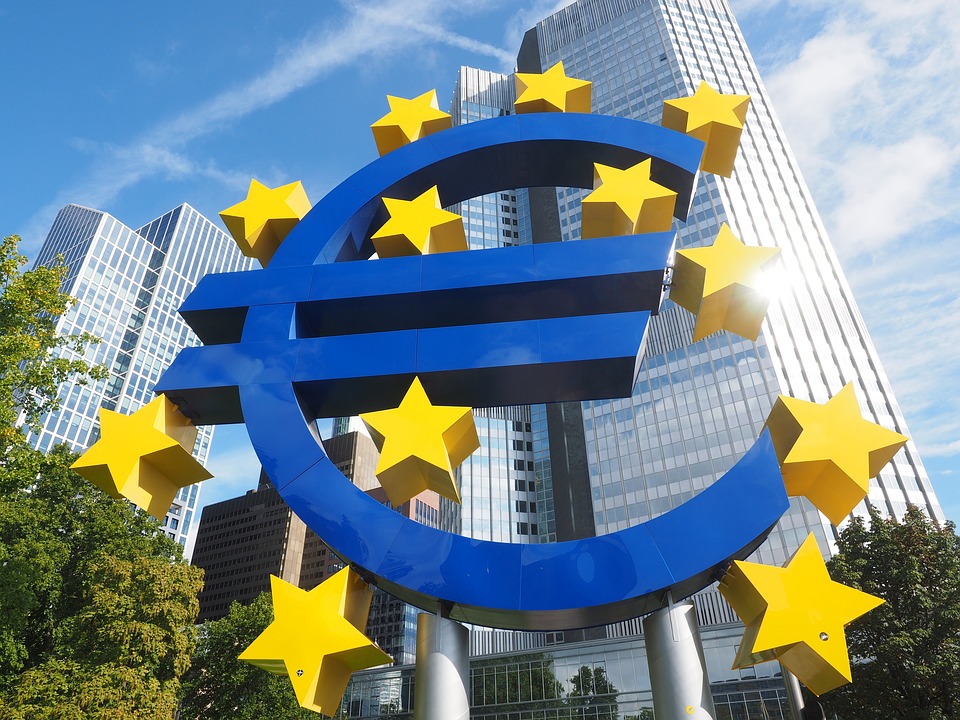UPDATE 1-Euro zone bond yields fall after Trump threatens tariffs on China

Eurozone bond yields fell on Wednesday after U.S. President Donald Trump threatened China with further tariffs if it fails to sign a trade deal, dimming the optimism that has hurt bond markets in recent weeks. Trump on Tuesday dangled the prospect of completing an initial trade deal with China "soon," but offered no new details on negotiations.
He said tariffs would be raised on Chinese goods "very substantially" if China does not make a deal with the United States. "And that's going to be true for other countries that mistreat us too," he added. Bond yields in the eurozone have risen significantly in recent weeks as optimism about a U.S.-China trade deal made safe-haven government bonds less attractive investments.
Germany's 10-year benchmark yield is up 11 basis points so far in November. Most 10-year bond yields were down around 4 basis points early on Wednesday. Benchmark 10-year German government bond yields were at -0.29%, compared with last week's -0.22%. The bond rally briefly pushed Germany's 20-year bond yield back into negative territory after it held positive for nearly a week. It was last at 0.00%>.
"I think that's why we see slightly lower yields this morning," DZ Bank rates strategist Sebastian Fellechner said, citing Trump's speech. He added that trade negotiations are the main trigger for the market right now and that revived trade worries confirm "yields should remain in the very negative area" given the high yields bonds have reached in recent sessions.
On the data front, eurozone industrial output figures came in better than forecast by a Reuters poll ahead of the eurozone and German gross domestic product readings on Thursday. Germany's economy contracted by 0.1% during the second quarter and a Reuters poll predicts it will have contracted by the same amount during the third quarter -- one of the key reasons behind pessimism on the eurozone economy.
Elsewhere, Italy bore the brunt of rising bond yields in its latest auction, where it paid the highest levels since July for three and seven-year bonds and the highest since May for 30-year debt. Italian bonds have been the key underperformer in the eurozone this month, with profit-taking, doubts around the durability of its coalition government and a budget review by the EU pushing the country's 10-year yield up 28 basis points.
U.S. Federal Reserve Chairman Jerome Powell will testify on the economic outlook before the congressional Joint Economic Committee at 1600 GMT. The Fed cut its benchmark rate for the third time this year in late October, but it dropped language in its policy statement that had been considered a sign of future rate cuts.
(This story has not been edited by Devdiscourse staff and is auto-generated from a syndicated feed.)
- READ MORE ON:
- China
- Donald Trump
- Italy
- Germany
- Jerome Powell
- German
- DZ Bank
- EU
- US Federal Reserve
ALSO READ
Germany denies accusations of aiding 'genocide' in Gaza at ICJ
Majority of German firms feel unfair competition in China, commerce chamber says
More than one in five Germans at risk of poverty or social exclusion
German police arrest Iraqi couple suspected of genocide for enslaving Yazidi girls
Father in Germany sentenced for injecting mercury into daughter's foot, convicted of attempted murder










